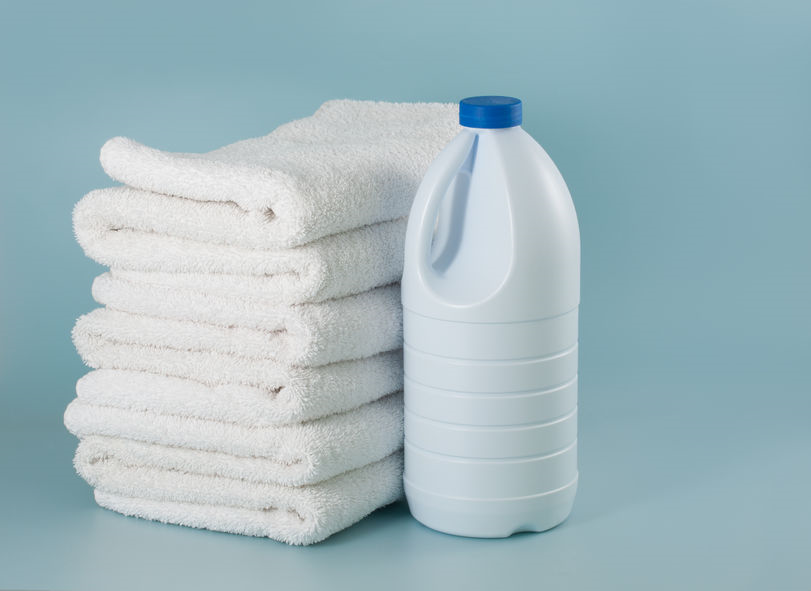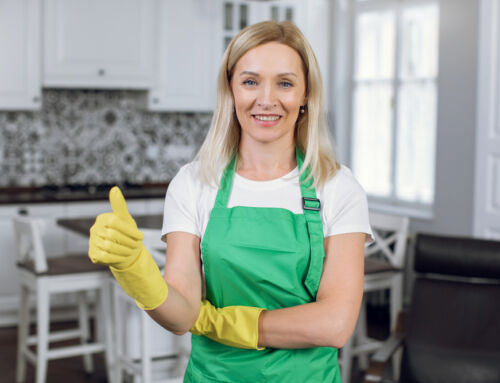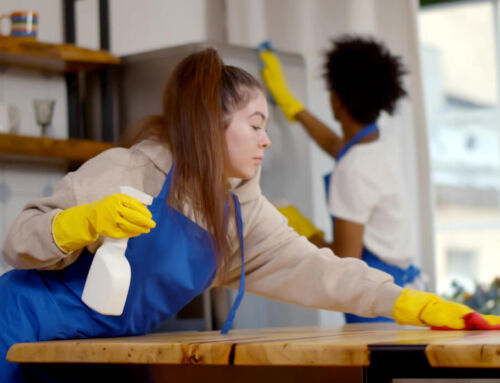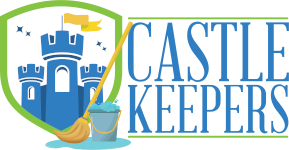Many homeowners think cleaning with bleach will ensure a spotless, disinfected surface. However, is bleach truly the best cleaner? Actually, when it comes to using bleach as a household cleaner, there are many safety considerations to bear in mind and there may be more cons than pros.
What surfaces should not be cleaned with bleach?
There are many surfaces bleach should never touch because it is corrosive. Never use bleach to clean copper, stainless steel, and most metals. This is especially important in the kitchen, where it is most likely to be used.
Bleach is also not recommended for porous surfaces like wood, many types of stone (granite, quartz, marble, etc.), rubber, and latex. Full strength sodium hypochlorite bleach can damage even surfaces and items on which it is generally safe to use. It is important to note that bleach should always be diluted.
While bleach is best known as a laundry stain remover and disinfectant, if your water contains iron, sodium hypochlorite may cause rust stains to appear on fabrics, so it could turn those dingy whites into spotty, streaky messes.
Does bleach clean or disinfect?
The funny thing about sodium hypochlorite bleach is that it isn’t what those in the cleaning industry call a cleaner. It is a disinfectant that should be used after cleaning. However, since it removes colors and odors, it gets lumped in with the “cleaners.”
Cleaning with bleach safety considerations
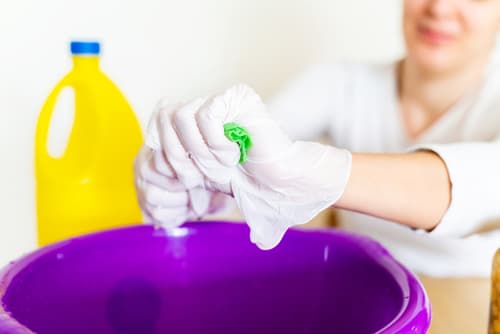
-
Users should wear gloves because full strength sodium hypochlorite can irritate the skin.
-
Fumes of full-strength bleach can damage lungs, so use it in a well-ventilated area
-
You should wear a mask when cleaning with bleach.
-
Bleach naturally breaks down over time. A bottle of bleach only lasts 6-9 months and diluted bleach breaks down in 24 hours and becomes ineffective, so you must make a new batch.
-
DO NOT MIX WITH ANY OTHER CLEANING PRODUCT (especially glass cleaner with ammonia and/or vinegar). This will form dangerous and possibly deadly fumes that will damage the lungs and cause other dangerous reactions.
-
It is worth saying again that bleach should always be diluted with water when being used for cleaning.
Where can I book excellent cleaning services?
To make sure your home is cleaned using proven and harmless techniques, it’s best to hire professionally trained cleaners. Here at Castle Keepers, we have extensive experience performing a wide range of services. Our experts are meticulously selected and trained. Plus, we bring with us top-quality products and tools that take the quality of our work to the next level.
Our team will create a tailored plan to help you with multiple aspects of the upkeep of your home, like:
We’re at your disposal for any questions you may have as well as for effortless scheduling. Give us a call and stop worrying about housework!

